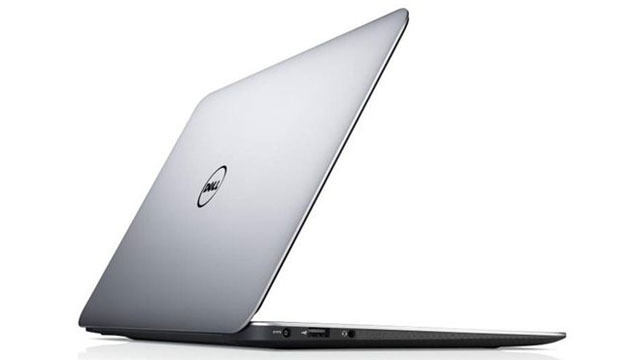
Dell has launched an experimental project called Sputnik to produce a Linux laptop that is tailored to meet the needs of software developers. The first stage of the project is a six-month exploratory effort that will pair Dell’s XPS13 Ultrabook with Ubuntu 12.04.
Dell’s Barton George, who described the concept this week in a blog post, hinted at the potential for a more ambitious follow-up effort if the initial experiment succeeds. Dell’s previous Linux efforts have had mixed results. The company first began to offer Ubuntu on desktop and laptop computers in 2007 after open source advocates used Dell’s IdeaStorm website to campaign for Linux preinstallation options.
The availability of Ubuntu-enabled hardware models from Dell has been spotty over the years. The dell.com/ubuntu landing page on Dell’s website often indicates that no products are available with Linux preinstalled, which was the case for most of the past year. At present, Dell is only offering two low-end Vostro models with Ubuntu to consumers in the US. Dell’s Ubuntu machines have reportedly fared better in China, where Dell has made an effort to give the Linux platform a retail presence.
Dell has also previously dabbled with Ubuntu developer machines. When it offered a Mini 10v with an incomplete build of the Ubuntu Moblin Remix in 2009, the company characterized it as an offering for developers and early adopters. And so it was: the touchpad didn’t work properly and the software was missing key features.
Through all of this, our position has been that Linux users would be better served if Dell would focus on improving Linux hardware compatibility across its line instead of trying to offer individual systems with Linux preinstalled. There are a lot of major areas where hardware support needs to be improved, especially on laptops, where power management and dual-mode graphics hardware are still not supported as well as they should be.
The preinstallation offerings in the past have been little more than a gimmick, especially given the small number of Dell systems for which it has historically been offered. The average Linux enthusiast is probably looking for a higher-end rig than the kind of ultra-budget systems that Dell has typically offered with Ubuntu. History has also shown that trying to sell Ubuntu on low-end systems to cost-conscious people who have never heard of Linux is not a winning formula.
More work to be done
Dell is clearly learning from its past mistakes and seems to have considered a lot of those issues in its Sputnik project. Using a desirable hardware configuration and focusing on developers as the audience is the right way to make an Ubuntu system that somebody might actually want to purchase.
Another area where Dell seems to be moving in the right direction with Sputnik is a focus on hardware enablement, which George talks about at length in his blog post. It’s not clear, however, whether Dell has fully learned what hardware enablement means with respect to the Linux desktop.
Hardware enablement that’s done solely to get a Linux system image that can be preinstalled on a specific hardware configuration is not particularly useful. It’s not enough to just make it work so that it can be shipped. If a computer requires a custom Linux build with binary drivers and a nonstandard configuration that can only be put together by the hardware manufacturer (which is exactly what Dell did with its Poulsbo-powered Mini 9 and some other previous systems) then it’s a failure before it even ships.
The drivers need to be open and upstream-friendly so that they can be maintained properly on an ongoing basis by people who actually know what they are doing. If the hardware isn’t fully compatible with a plain vanilla build of Ubuntu that has been downloaded from the Ubuntu website, then the user has no guarantee that the product will still be able to run up-to-date software for the full duration of its lifespan.
That’s the real problem that Dell needs to solve. Linux users want computers with known-good hardware configurations that they can continue to support themselves without having to rely on binary blobs from Dell that may or may not continue to work in the future. A major player like Dell has the resources and clout to start addressing that problem in a serious and meaningful way.
At the very least, the company needs to be careful to pick components that are supported well upstream. What would be ideal is if Dell started encouraging its hardware suppliers to open their drivers and merge them into the mainline kernel tree. That would be infinitely more constructive for advancing desktop Linux than any preinstallation scheme.
Of course, the two aren’t mutually exclusive. If Dell wants to use its ultrabook configuration as a starting point for working on better upstream drivers, then that’s great. What ultimately matters is for Dell to understand that the upstream work is the more important part of the equation.
It’s also critically important to understand that open drivers aren’t merely an idealogical preference. The ability to maintain driver code upstream is fundamental to the Linux development model and the only way to ensure sustainable long-term hardware support in the Linux ecosystem.
Dell’s interest in serving a Linux developer audience is commendable, and the Sputnik project seems to have a lot of great potential. But if Dell wants to make its Linux effort a success, the company has to start by understanding the upstream ecosystem and focusing on doing hardware enablement in a sustainable way.
reader comments
84